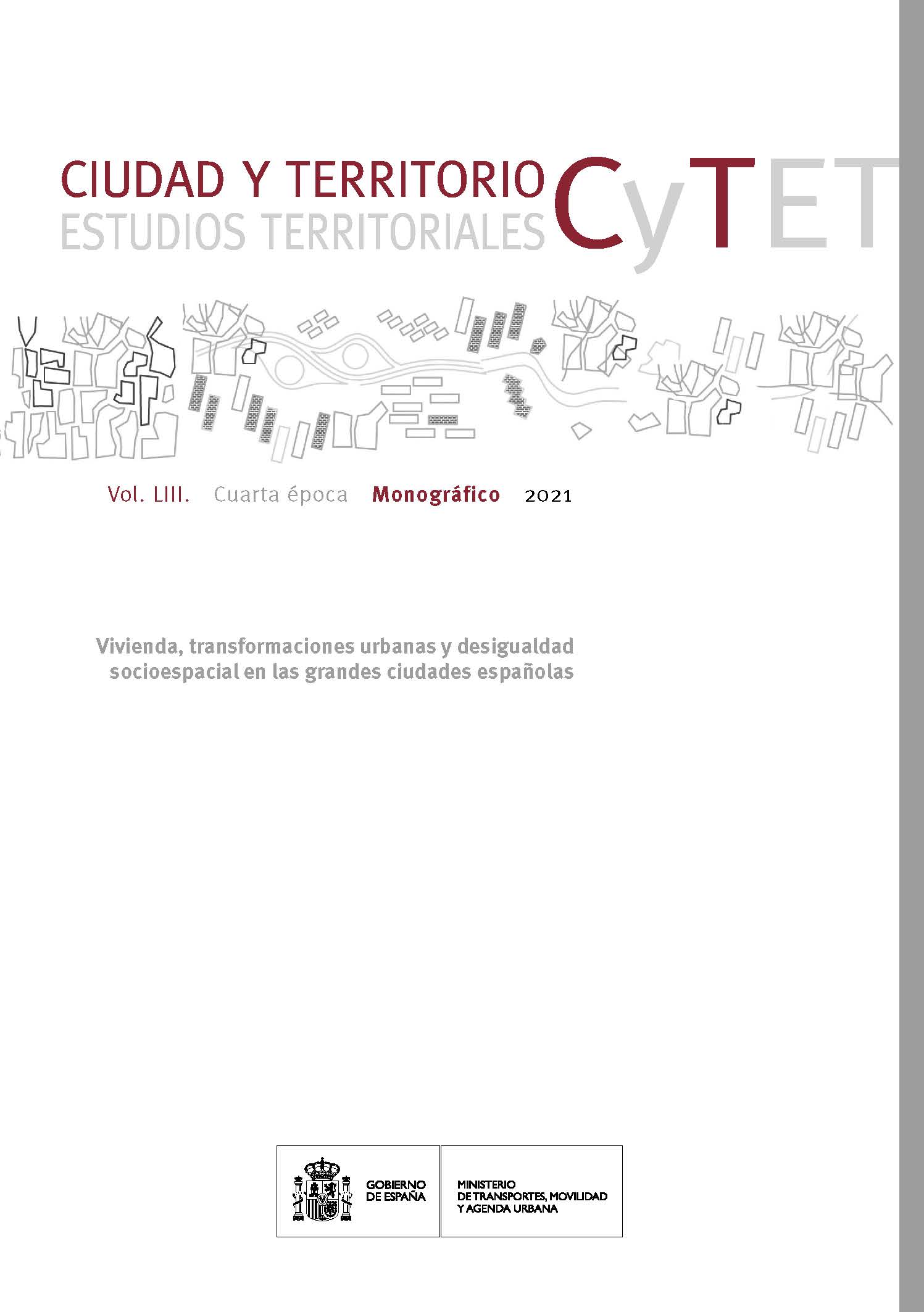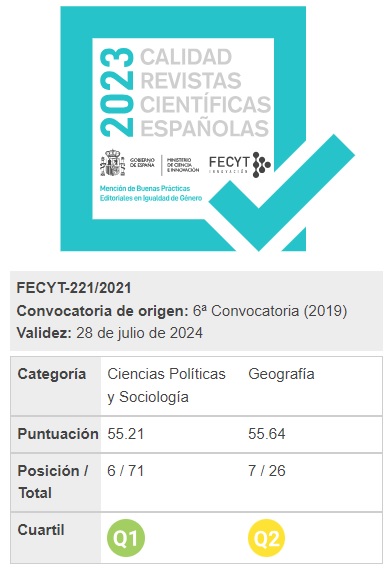Policies and tools to promote buildings’ energy renovation in France and Germany
DOI:
https://doi.org/10.37230/CyTET.2021.M21.14.2Keywords:
France, Germany, Energy efficiency, Building renovation, Urban regeneration, Long-term strategyAbstract
The aim of the article is to analyze the policies to support the energy renovation of homes in France and Germany, two of the European countries with the highest renovation rates. For this, the official documents of the central administration of both countries are analyzed, using the official gazettes and primary sources of the different ministries or other agents involved in the development and execution of the different sectoral strategies (energy, housing, climate change, social welfare, etc.) that affect renovation policy. For both case studies, the following areas of analysis are included: global vision of renovation policies in each country, financing instruments, mechanisms for stakeholder engagement and demand activation, and identification of replicable elements in the Spanish context.
Downloads
References
ANAH (2010): “Investissements d’avenir, convention Agence nationale de l’habitat (ANAH). Action: «rénovation thermique des logements privés»” JORF n° 0165 du 20 juillet 2010. https://www.legifrance.gouv.fr/jorf/id/JORFTEXT000022497233
BMWi (2017): “National Energy Efficiency Action Plan (NEEAP) 2017 for the Federal Republic of Germany pursuant to Directive 2012/27/EU of the European Parliament and of the Council of 25 October 2012 on energy efficiency”. Federal Ministry for Economic Affair (BMWi). https://ec.europa.eu/energy/sites/ener/files/documents/de_neeap_2017_en.pdf
Castrillo, M (2010): “El urbanismo de renovación de grandes conjuntos de vivienda social en Francia, 2004-2008”. Revista Proyecto, Progreso, Arquitectura. N.º 2. Superposiciones al territorio. Universidad de Sevilla.
Government of the Federal Republic of Germany (2014): “Report on the long-term strategy for mobilising investment in the renovation of the national building stock pursuant to Article 4 of the Energy Efficiency Directive 2012/27/EUof the European Parliament and of the Council of 25 October 2012”. https://ec.europa.eu/energy/sites/ener/files/documents/2014_article4_en_germany.pdf
Matesanz, A (2015): “Breves apuntes sobre la Politique de la Ville en Francia (I) y (II)”. Link: http://www2.aq.upm.es/Departamentos/Urbanismo/blogs/re-hab/rui-europa-apuntes-caso-fr/
MEDDE-MLET (2014): Transposition de l’article 4 de la directive 2012/27/UE. Strategie de mobilisation des investissements dans la renovation energetique des batiments. Direction de l’Habitat de l’urbanisme et des paysages. Ministère de l’Ecologie, du Développement Durable, et de l’Energie (MEDDE) et Ministère du Logement et de l’Egalité des Territoires (MLET). https://ec.europa.eu/energy/sites/ener/files/documents/2014_article4_fr_france.pdf
MEDDE-MLET (2017): Transposition de l’article 4 de la directive 2012/27/UE. Stratégie à long terme pour mobiliser les investissements dans la rénovation du parc national de bâtiments à usage résidentiel et commercial, public et privé. Direction de l’Habitat de l’urbanisme et des paysages. Ministère de l’Environnement, de l’Energie et de la Mer (MEEM) et Ministère du Logement et de l’Egalité des Territoires (MLET). https://ec.europa.eu/energy/sites/ener/files/documents/fr_building_renov_2017_fr.pdf
Pelegry, E. A. & Martínez, I. O. (2016): “La transición energética en Alemania”. Cuadernos Orkestra 2016/15. Orkestra-Instituto Vasco de Competitividad. https://www.orkestra.deusto.es/images/investiga¬cion/publicaciones/informes/cuadernos-orkestra/La_transici%C3%B3n_energ%C3%A9tica_en_Alemania_Energiewende_-_Versi%C3%B3n_web.Pdf
Published
How to Cite
Issue
Section
License
Copyright (c) 2021 Carolina GARCÍA-MADRUGA, Patricia MOLINA-COSTA

This work is licensed under a Creative Commons Attribution-NonCommercial-NoDerivatives 4.0 International License.
Considering the provisions of the current legislation on Intellectual Property, and in accordance with them, all authors publishing in CyTET give -in a non-exclusive way and without time limit- to the Ministry of Transport, Mobility and Urban Agenda the rights to disseminate, reproduce, communicate and distribute in any current or future format, on paper or electronic, the original or derived version of their work under a Creative Commons Attribution-NonCommercial-NoDerivative 4.0 license International (CC BY-NC-ND 4.0), as well as to include or assign to third parties the inclusion of its content in national and international indexes, repositories and databases, with reference and recognition in any case of its authorship.
In addition, when sending the work, the author(s) declares that it is an original work in which the sources that have been used are recognized, committing to respect the scientific evidence, to no longer modify the original data and to verify or refute its hypothesis. Author(s) also declare that the essential content of the work has not been previously published nor will it be published in any other publication while it is under evaluation by CyTET; and that it has not been simultaneously sent to another journal.
Authors must sign a Transfer of Rights Form, which will be sent to them from the CyTET Secretariat once the article is accepted for publication.
With the aim of promoting the dissemination of knowledge, CyTET joins the Open Journal Access (OA) movement and delivers all of its content to various national and international indexes, repositories and databases under this protocol; therefore, the submission of a work to be published in the journal presupposes the explicit acceptance by the author of this distribution method.
Authors are encouraged to reproduce and host their work published in CyTET in institutional repositories, web pages, etc. with the intention of contributing to the improvement of the transfer of knowledge and the citation of said works.








 Enlace a CyTET en Linkedin
Enlace a CyTET en Linkedin